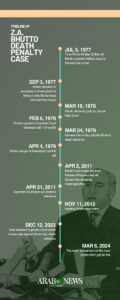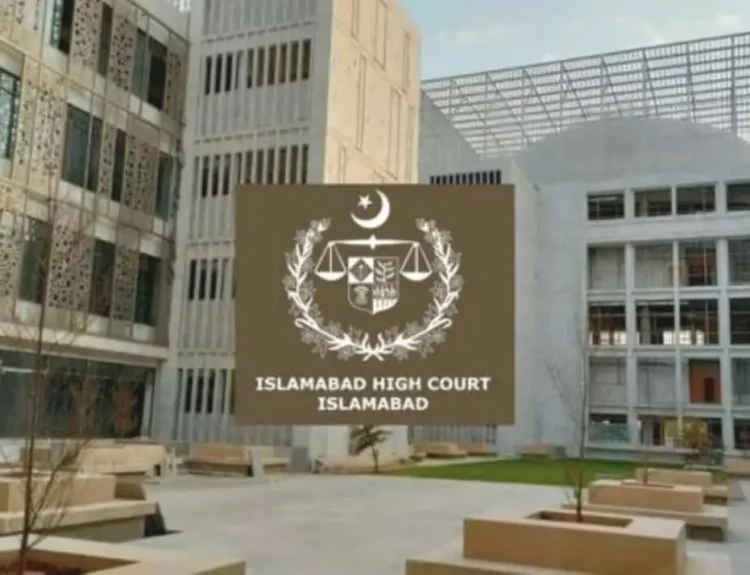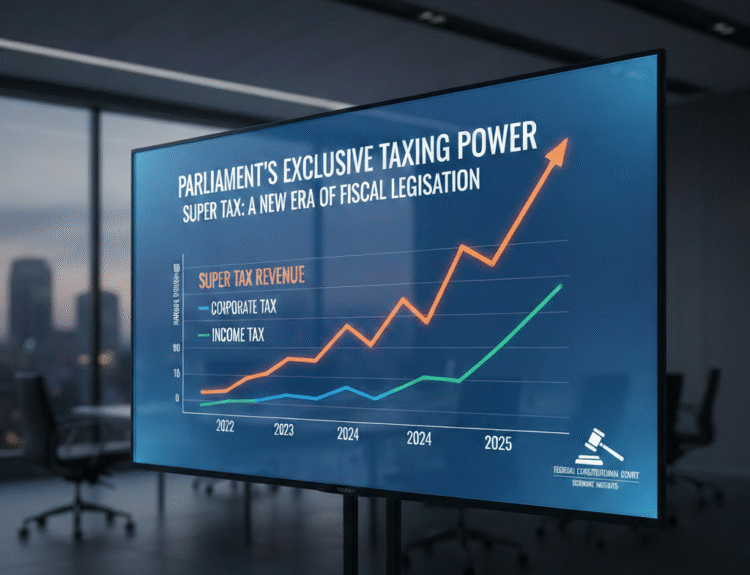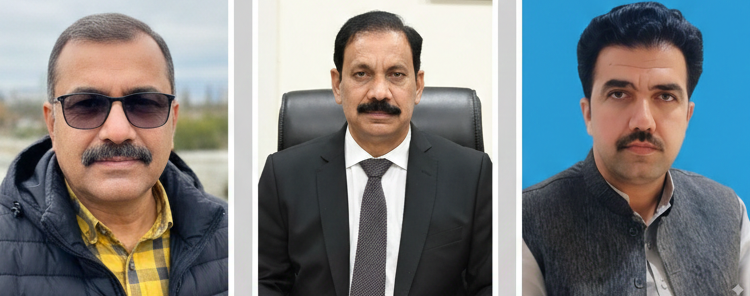While exercising its advisory jurisdiction on Wednesday top court observed saying the proceedings relating to trial of former Prime Minister Zulfikar Ali Bhutto lacked of due process and fair trial in Lahore High Court and appeal in Supreme Court.
Zulfikar Ali Bhutto was hanged on April 4, 1979, in Rawalpindi District Jail, where he had been confined since his conviction on charges of conspiring to murder a political opponent. The charismatic, Western-educated leader who founded the Pakistan Peoples Party (PPP) served as the fourth president of Pakistan from 1971 to 1973, and later as the country’s ninth prime minister from 1973 to 1977. He was ousted in a military coup by General Mohammad Zia-ul-Haq on July 5, 1977, following an election in which Bhutto is widely charged with having rigged the vote.
Arab News reported that legal experts have for years questioned Bhutto’s trial both in the Lahore High Court and the Supreme Court, and raised questions on the conduct and procedure of the hearings, as well as on the fact that they took place while Pakistan was under military rule. Analysts argue this is the reason Bhutto’s death penalty judgment has never been cited as a precedent in any subsequent case in Pakistan’s judicial history. 
A nine-member bench in response to presidential reference reserved verdict including Chief Justice of Pakistan (CJP) Qazi Faez Isa, Justice Sardar Tariq Masood, Justice Syed Mansoor Ali Shah, Justice Yahya Afridi, Justice Amin-ud-Din Khan, Justice Jamal Khan Mandokhail, Justice Muhammad Ali Mazhar, Justice Syed Hasan Azhar Rizvi and Justice Musarrat Hilali. Announcing majority opinion in the matter the Chief Justice observed judges are to decide cases impartially, adding there should be self-accountability within the judiciary,” he stated, adding that the judiciary cannot progress without admitting its past errors.
Chief Justice Qazi Faez Isa observed while announcing the unanimous opinion of the court under its advisory jurisdiction saying the proceedings relating to of trial by the Lahore High Court and of the appeal by the Supreme Court of Pakistan do not meet the requirements of the fundamental right to a fair trial and due process enshrined in Articles 4 and 9 of the Constitution,”
He further said, “In the course of performing our core duty to administer justice ‘in accordance with the Constitution of the Islamic Republic of Pakistan and the law’, we (judges) are bound to ‘do right to all manner of people, according to law, without fear or favour, affection or ill-will.’ There have been some cases in our judicial history that created a public perception that either fear or favour deterred the performance of our duty to administer justice in accordance with the law. We must, therefore, be willing to confront our past missteps and fallibilities with humility, in the spirit of self-accountability, and as a testament to our commitment to ensure that justice shall be served with unwavering integrity and fidelity to the law. We cannot correct ourselves and progress in the right direction until we acknowledge our past mistakes”.




